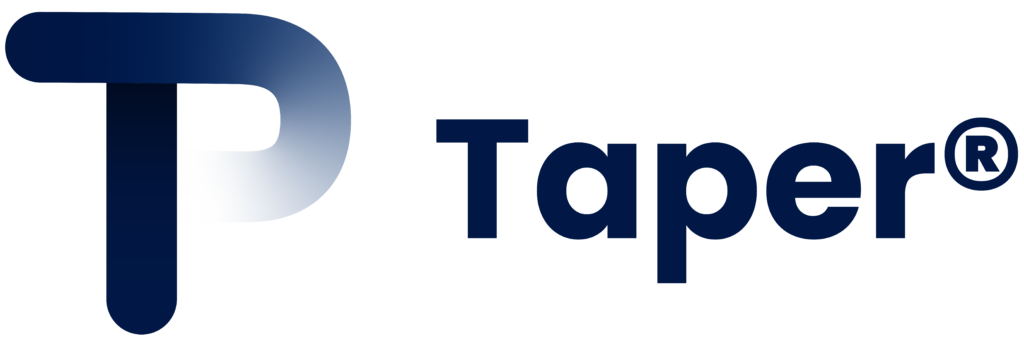Supply chain finance significantly improves cash flow management by allowing buyers to extend payment terms whilst providing suppliers with early payment options. This financing solution optimises working capital for all parties involved, reduces financing costs, and creates more predictable cash flow patterns for businesses engaged in international trade operations.
Understanding supply chain finance and cash flow management
Supply chain finance represents a collaborative approach to optimising cash flow across the entire supply chain network. This financial mechanism connects buyers, suppliers, and financial institutions to create mutually beneficial arrangements that improve liquidity and reduce costs.
The relationship between supply chain finance and cash flow management centres on timing optimisation. Traditional trade relationships often create cash flow mismatches where suppliers need immediate payment whilst buyers prefer extended payment terms. Supply chain financing bridges this gap by introducing financial solutions that satisfy both parties’ requirements.
For businesses operating internationally, managing cash flow becomes particularly complex due to varying payment cycles, currency fluctuations, and cross-border transaction delays. Supply chain finance addresses these challenges by providing structured financial products that smooth out payment irregularities and create more predictable cash flow patterns.
What is supply chain finance and how does it work?
Supply chain finance is a set of technology-enabled business and financing processes that connect buyers, suppliers, and funding providers to lower financing costs and improve business efficiency. The process involves three key participants working together to optimise payment flows.
The mechanism operates through digital platforms where buyers approve invoices from their suppliers. Once approved, suppliers can choose to receive early payment from financial institutions at a discounted rate, whilst buyers maintain their preferred payment terms. This creates a win-win situation where suppliers improve their cash flow and buyers preserve their working capital position.
Financial institutions play a central role by providing the funding that enables early payments to suppliers. They assess the creditworthiness of the buyer rather than the supplier, which often results in better financing terms. The buyer ultimately pays the financial institution on the original due date, completing the transaction cycle.
Trade finance solutions facilitate these arrangements through various instruments including reverse factoring, dynamic discounting, and supplier financing programmes. Each solution addresses specific supply chain financing needs whilst maintaining the underlying principle of optimising cash flow timing for all participants.
How does supply chain financing improve working capital management?
Supply chain financing creates significant improvements in working capital management by extending the cash conversion cycle for buyers whilst accelerating it for suppliers. This dual benefit optimises the overall capital efficiency across the supply chain network.
Buyers benefit from extended payment terms, which allows them to maintain cash in their business for longer periods. This extended payment period improves their accounts payable management and provides additional flexibility for investment in growth opportunities or operational requirements.
Suppliers gain access to early payment options that dramatically improve their cash flow position. Rather than waiting for standard payment terms, suppliers can access funds immediately after invoice approval, enabling them to:
- Reduce dependency on expensive short-term financing
- Take advantage of early payment discounts from their own suppliers
- Invest in business growth opportunities
- Improve their overall financial stability
The working capital optimisation extends beyond individual companies to create supply chain-wide efficiency improvements. When suppliers have better cash flow, they can offer more competitive pricing and improved service levels, ultimately benefiting the entire network.
What are the key benefits of supply chain finance for cash flow?
The primary benefits of supply chain finance for cash flow management include reduced financing costs, enhanced payment predictability, and improved supplier relationships. These advantages create lasting positive impacts on business operations and financial performance.
Supplier financing arrangements typically offer lower interest rates compared to traditional bank loans or overdraft facilities. This occurs because financial institutions base their risk assessment on the creditworthy buyer rather than the supplier, resulting in more favourable terms for all parties involved.
Cash flow predictability improves significantly through supply chain finance programmes. Suppliers can forecast their cash receipts more accurately, whilst buyers can plan their payment schedules with greater precision. This predictability enables better financial planning and reduces the need for emergency financing arrangements.
Enhanced supplier relationships represent another significant benefit. When suppliers have access to early payment options, they often provide:
- Better pricing terms and volume discounts
- Priority treatment during supply shortages
- Improved service levels and delivery performance
- Greater willingness to invest in buyer-specific improvements
For businesses engaged in international trade, supply chain finance also helps mitigate currency risks and cross-border payment complexities. The structured nature of these programmes provides stability in an otherwise volatile international trading environment.
Key takeaways for implementing supply chain finance solutions
Successful implementation of supply chain finance requires careful consideration of partnership requirements, technology integration, and long-term strategic alignment. Businesses should evaluate their current cash flow patterns and identify opportunities where supply chain financing can create the most significant impact.
Partnership selection proves important for programme success. Companies should work with financial service providers who understand international trade complexities and can offer comprehensive solutions including multi-currency support and cross-border payment capabilities.
Technology integration enables efficient programme management and real-time visibility into cash flow improvements. Modern supply chain finance platforms provide automated invoice processing, real-time reporting, and seamless integration with existing financial systems.
Long-term impact on cash flow management extends beyond immediate financing benefits. Companies often discover that supply chain finance programmes improve their overall financial discipline, enhance supplier collaboration, and create competitive advantages in their markets.
Implementation should begin with pilot programmes involving key suppliers before expanding to the broader supply chain network. This approach allows companies to refine their processes and demonstrate value before committing to larger-scale implementations.
For businesses looking to optimise their international payments alongside supply chain finance initiatives, we at TaperPay provide comprehensive solutions that streamline cross-border transactions and support efficient cash flow management across global supply chains. Our Business IBAN services enable seamless integration with supply chain finance programmes whilst maintaining full compliance with international banking standards.
[seoaic_faq][{“id”:0,”title”:”How long does it typically take to set up a supply chain finance programme?”,”content”:”Implementation timelines vary depending on the complexity of your supply chain and technology requirements, but most programmes can be established within 3-6 months. This includes partner selection, platform integration, supplier onboarding, and pilot testing. Starting with a smaller group of key suppliers can accelerate the initial rollout and allow you to refine processes before expanding to your broader supplier network.”},{“id”:1,”title”:”What are the minimum requirements for suppliers to participate in supply chain finance programmes?”,”content”:”Suppliers typically need basic digital capabilities to access online platforms, valid business registration, and the ability to submit electronic invoices. Most programmes don’t require suppliers to meet specific credit ratings since financing decisions are based on the buyer’s creditworthiness. However, suppliers should have established trading relationships with participating buyers and meet any compliance requirements set by the financial institution.”},{“id”:2,”title”:”How do currency fluctuations affect supply chain finance in international trade?”,”content”:”Supply chain finance can actually help mitigate currency risks by providing more predictable payment timing and often including multi-currency support. Many programmes offer currency hedging options or allow payments in the supplier’s preferred currency. The structured nature of these arrangements provides stability compared to traditional international payment methods, though businesses should still consider currency exposure when designing their programmes.”},{“id”:3,”title”:”What happens if a supplier chooses not to use early payment options?”,”content”:”Suppliers maintain complete flexibility to use early payment options on a transaction-by-transaction basis. If they choose not to access early payment, they simply receive payment on the original terms without any penalties or consequences. This flexibility allows suppliers to optimize their cash flow based on their immediate needs while maintaining the option for future use.”},{“id”:4,”title”:”How do supply chain finance costs compare to traditional business loans or overdrafts?”,”content”:”Supply chain finance typically offers significantly lower costs than traditional financing options because rates are based on the buyer’s credit rating rather than the supplier’s. Suppliers often see cost reductions of 2-5 percentage points compared to bank loans or overdraft facilities. The exact savings depend on the buyer’s credit strength and the financial institution’s pricing structure.”},{“id”:5,”title”:”Can small and medium-sized suppliers benefit from supply chain finance programmes?”,”content”:”Yes, SME suppliers often benefit the most from supply chain finance programmes since they typically have limited access to affordable financing options. These programmes provide them with access to institutional-grade financing rates based on their larger buyers’ creditworthiness. This levels the playing field and allows smaller suppliers to compete more effectively while improving their cash flow management.”},{“id”:6,”title”:”What reporting and visibility features should I expect from a supply chain finance platform?”,”content”:”Modern platforms should provide real-time dashboards showing programme utilization, cost savings, cash flow improvements, and supplier participation rates. Look for features including automated reporting, integration with your existing ERP systems, multi-currency transaction tracking, and detailed analytics on payment patterns. These insights help optimize programme performance and demonstrate ROI to stakeholders.”}][/seoaic_faq][seoaic_multistep_form position=”undefined”][{“id”:”#1″,”type”:”text”,”question”:”Hi there! 👋 I see you’re reading about multi-currency IBAN accounts for supply chain payments. Smart choice – these accounts can save businesses 2-4% on every international transaction!”,”formItems”:[{“type”:”message”,”text”:”I’m here to help you discover how Taper’s multi-currency solutions can streamline your international payments and eliminate those costly conversion fees.”}],”buttons”:[],”autostep”:”#2″},{“id”:”#2″,”type”:”single”,”question”:”What best describes your current situation with international supplier payments?”,”formItems”:[],”buttons”:[{“text”:”We make regular payments to international suppliers”,”step”:”#3″},{“text”:”We’re planning to expand internationally soon”,”step”:”#4″},{“text”:”We’re struggling with high conversion fees and delays”,”step”:”#3″},{“text”:”Just researching options for now”,”step”:”#4″}],”autostep”:””},{“id”:”#3″,”type”:”multi”,”question”:”Which of these challenges are you currently facing with international payments? (Select all that apply)”,”formItems”:[{“type”:”checkbox”,”text”:”High currency conversion fees (2-4% per transaction)”},{“type”:”checkbox”,”text”:”Slow payment processing times (3-5 days)”},{“type”:”checkbox”,”text”:”Managing multiple bank accounts across countries”},{“type”:”checkbox”,”text”:”Unpredictable correspondent banking charges”},{“type”:”checkbox”,”text”:”Complex reconciliation processes”},{“type”:”checkbox”,”text”:”Poor visibility into payment status”}],”buttons”:[{“text”:”Continue”,”step”:”#5″}],”autostep”:””},{“id”:”#4″,”type”:”textfield”,”question”:”What’s driving your interest in multi-currency payment solutions? Tell us about your business goals or challenges.”,”formItems”:[{“type”:”textarea”,”placeholder”:”e.g., expanding to new markets, reducing payment costs, improving supplier relationships…”}],”buttons”:[{“text”:”Continue”,”step”:”#6″}],”autostep”:””},{“id”:”#5″,”type”:”textfield”,”question”:”Great! To help us understand your specific needs better, could you share more details about your international payment volume or any particular requirements?”,”formItems”:[{“type”:”textarea”,”placeholder”:”e.g., monthly payment volume, key supplier countries, integration needs with existing systems…”}],”buttons”:[{“text”:”Continue”,”step”:”#6″}],”autostep”:””},{“id”:”#6″,”type”:”contact_fields”,”question”:”Perfect! Let’s connect you with one of our international payments specialists who can show you exactly how Taper’s multi-currency IBAN accounts can save you money and streamline your supply chain payments.”,”formItems”:[{“type”:”text”,”text”:”Full Name”},{“type”:”email”,”text”:”Business Email”},{“type”:”tel”,”text”:”Phone Number”},{“type”:”select”,”text”:”Preferred Contact Method”,”options”:[“Email”,”Phone Call”,”WhatsApp”,”Video Call”]}],”buttons”:[{“text”:”Book My Free Consultation”,”step”:””}],”autostep”:””}][/seoaic_multistep_form]



